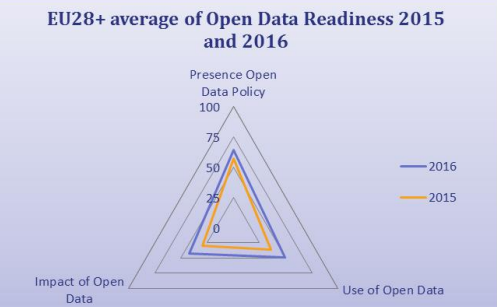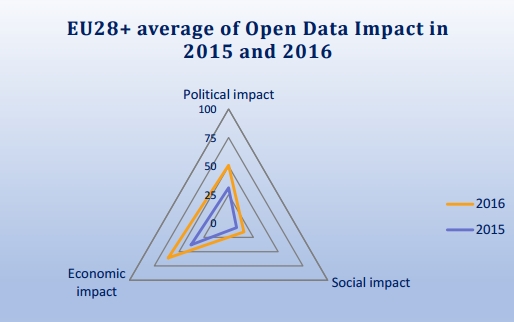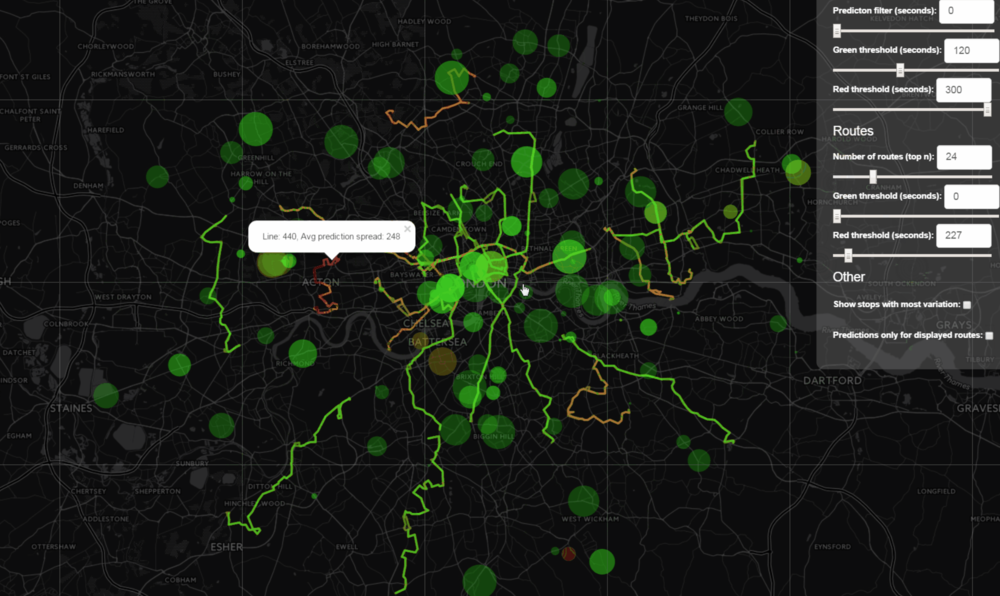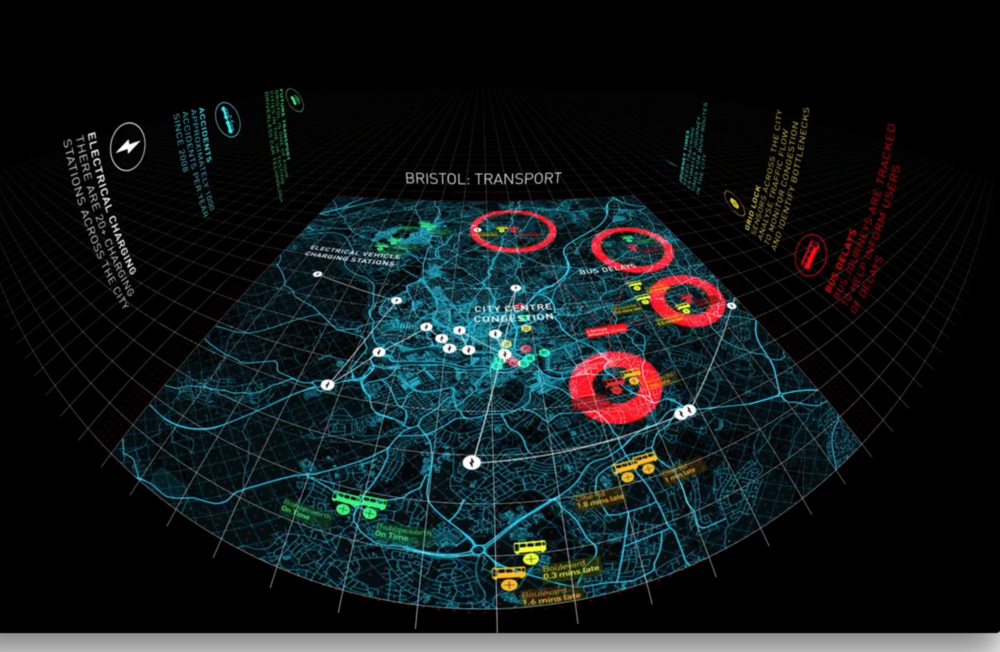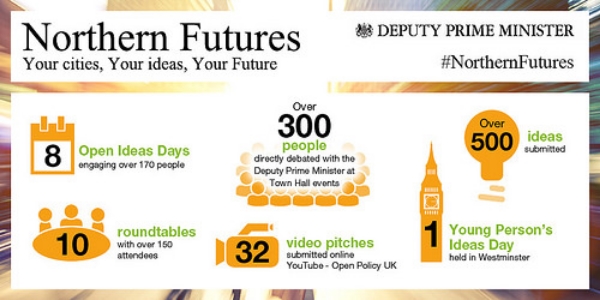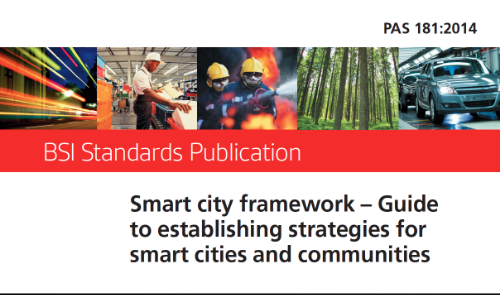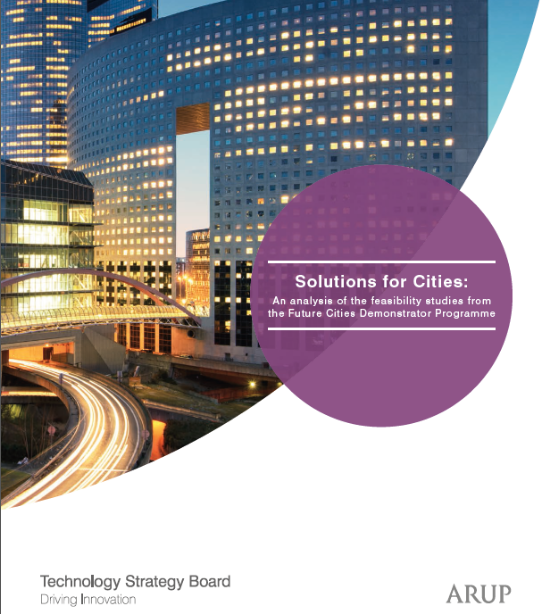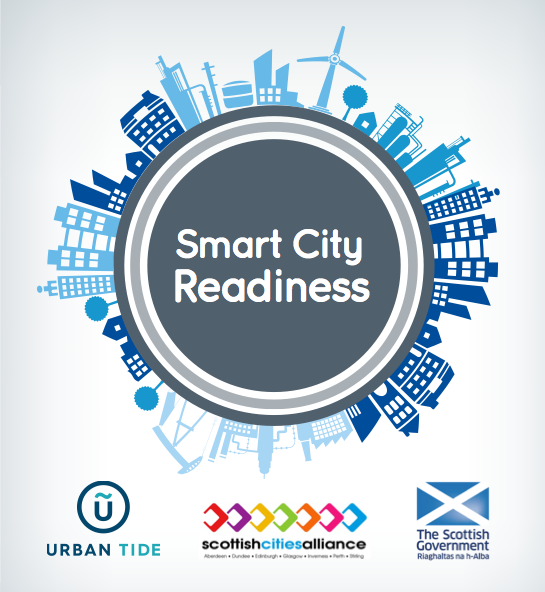Open data everywhere! Review of open data maturity in Europe, UK and Scotland.
Last week the European Data Portal published a report on the state of Open Data Maturity across 28 countries.
October 18, 2016

The European Data Portal published a report on the state of Open Data Maturity in the EU28+ countries (EU+Liechtenstein, Norway and Switzerland). We dove into this fascinating 71-page document to unearth key information to provide you with a snapshot of what’s going on in Europe, the UK and Scotland.
The measurement of the maturity of open data in various countries and overall was built on two key indicators: open data readiness and portal maturity. This covered the level of development of national activities promoting open data as well as the level of development of national portals, including more systematic impact assessments and evaluation studies of open data benefits.

Table 1 - Open Data Maturity Indicators
Before we go into detail about the findings it is important to state that the study uses the following definition for open data:
“Open data refers to the information collected, produced or paid for by public bodies which can be freely used, modified and shared by anyone for any purpose.”
— http://opendefinition.org/
Open Data Maturity in Europe
The report revealed that in 2016 there was an overall increase in open data maturity compared to 2015, and by 2016 a majority of the EU28+ countries have successfully developed a basic approach to address open data.
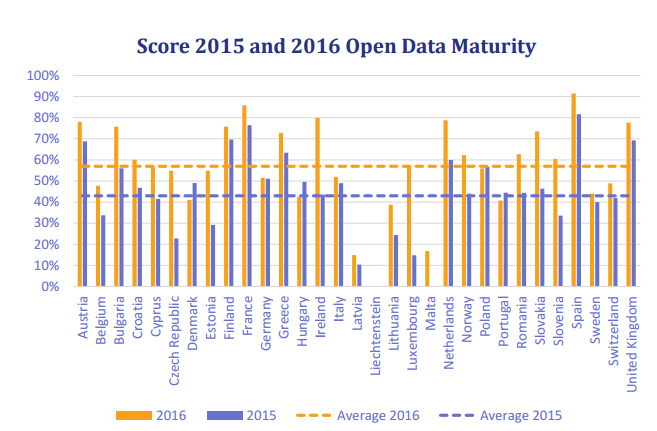
Figure 1 - Score of Open Data Maturity per country in 2015 and 2016
In 2015, only five countries - Finland, Austria, the United Kingdom, Greece and the Netherlands - reached enough points to be ready for open data. In 2016, this group increased to ten countries, with Ireland, Slovakia, Bulgaria, Romania and Norway reaching new open data readiness levels.
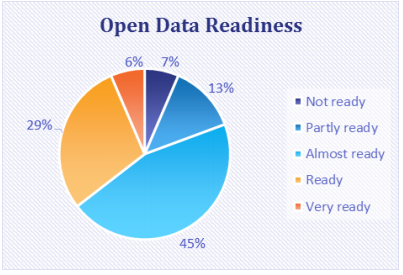
Figure 2 - Overall distribution of countries per level of open data readiness
Open Data Policy
When taking a closer look at open data readiness, it becomes clear that most countries show an increase in maturity regarding the presence of an open data policy. In 2016, 81% of the investigated countries have a dedicated open data policy, which is a large increase compared to 69% last year.
Figure 3 - EU28+ average of open data readiness in 2015 and 2016 Figure 4 - EU28+ average of impact of open data policies in 2015 and 2016
The report found that there are 3 different forms of policy that relate to open data. For 19 out of 31 countries investigated, the open data policy is the same as the public sector information policy. The other 12 countries have separate policies for open data. In these cases, open data is defined as data that is entirely free of charge, is made available in a machine-readable format and is under an open licence.
A third type of policy that relates to open data is one that supports the re-use of open data. In 84% of the countries such policies are incorporated, ensuring that national governments not only support the publication of open data but also actively encourage re-use where the potential value and benefits of open data are augmented.
With more national open data policies defined or currently revised there is a growing number of regions and cities actively publishing data either directly via the national portal or via ad hoc regional or city portals. Due to this, new challenges arise for governments in terms of keeping track of these initiatives, providing guidance and proactively gathering their data on national portals.
Use and Impact of Open Data
Both the use and impact of open data have increased in comparison to 2015; many countries launched activities to promote their open data policies and portals and developed additional means to monitor users.
On average, per month, 53% of the countries had more than 0.05% of inhabitants visiting their national portals. This illustrates growing awareness around open data; the increase can be partially explained by the fact that in 2016 more countries have open data portals.
Another interesting feature is the proportion of foreign visitors to any given country’s portal. National open data is of interest to other countries, particularly neighbours. For visitors make up 1.5% to 30% of all visitors with an the average of 16%, underlining how data publishers cannot presume who will be most interested in their data
There is also a clear increase when it comes to understanding the political, social and economic impact of open data, although scores differ largely between countries.
United Kingdom - A Brief Overview
Open Data Maturity groups countries into four categories: beginners, followers, fast trackers and trendsetters.
Table 2 - Number of beginners, followers, fast trackers and trendsetters in 2015 and 2016
UK is considered among the trendsetters when it comes to open data maturity.
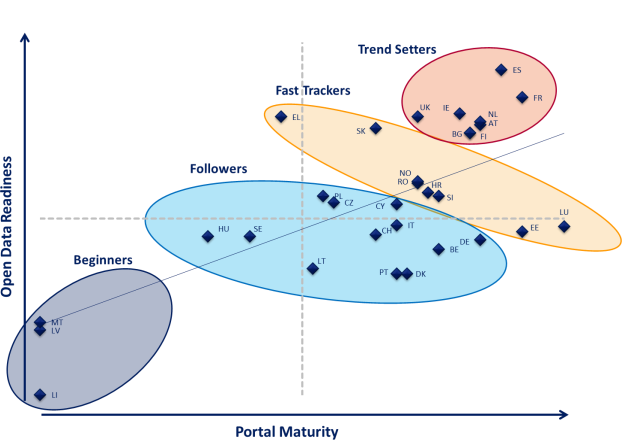
The national UK data portal is http://data.gov.uk/, with 35,000+ datasets, and there are numerous separate local data portals. An Open Data Policy was published on the 28th of June 2012. Priority domains still need to be identified and a national five-year strategy is currently under development.
Licensing norms are defined with the (UK) Open Data Policy encouraging the use of Open Government Licence.
The UK data portal scored high on usability by allowing its users to:
- Search datasets
- Download datasets
- Provide feedback
- Access API
However, contribution to the portal remains complicated with various bureaucratic barriers.
There are 162,486 (0.25% of inhabitants) unique visitors on average per month to the portal, of which 19.4% are foreign visitors. 67% of the traffic is generated by humans. Most datasets are available in CSV format with 50-60% of the datasets being machine readable.
For more info head over to the European Data Portal’s UK Overview.
Scotland - A Brief Overview
Scotland published an Open Data Strategy in February 2015. The strategy was developed by a short-term open data working group with representation from across the public sector. In August 2015 an Open Data Resource pack was released with the intention to help public authorities throughout Scotland develop and implement their own plans for open data.
The Open Data Strategy adopted the G8 Open Data Principles and aimed to create a Scotland where non-personal and non-commercially sensitive data are recognised as valuable resources made available openly for use by all.
According to the strategy, by 2017 all public authorities in Scotland should be publishing their data in a format of 3-star or above. 3-star data is data which is made available online, with an open license in an open and machine-readable format, i.e. CSV, JSON.
Scotland has made strides in open data legislation recently too. In 2016, the Scottish Information Commissioner made open data a new data class in the model publication scheme.
Furthermore, options exist for the public sector in Scotland to publish both statistical open data and to INSPIRE compliant spatial data on two state-of-the-art publication platforms: https://statistics.gov.scot and https://www.spatialdata.gov.scot.
The remaining open data can be published on local, regional or organisation-specific portals such as the Edinburgh Data Portal, Glasgow Open Data Portal, Scottish Parliament Open Data or the Crichton Institute Regional Observatory. Organisations are also publishing data onto the data.gov.uk site.
There are also various local authorities and public sector organisations with open data strategies and publication plans such as Renfrewshire Council, Perth and Kinross Council and the National Library of Scotland.
There is a lot of activity in Scotland around raising awareness. Hackathons are common such as Code the City - Aberdeen, Future Libraries by Product Forge and EdinburghApp. Those interested can also join meetups organised around the topic of open data, where stakeholders listen to inspiring talks and exchange knowledge and experiences with their peers and communities such as the Open Government Scotland group.
There are a number of organisations spreading awareness around open data by providing access to data or by facilitating knowledge exchange and training: ODI Aberdeen, DataLab and Urban Big Data Centre.
Awareness raising often means focusing on developing the right skill set to work with open data. To bridge the knowledge gap and contribute to the maturity of Scotland’s open data level, Urban Tide recently launched a range of new open data training sessions including an Open Data Crash Course, 1- and 2-day workshops and 1-day hands-on sessions where delegates use their own data to learn how to open, cleanse, validate, visualise and publish with our guidance and support.
Developing multidisciplinary teams where skills are complemented is key, with blending hard and soft skills as illustrated in the figure below.
Check out our training programme and tailored mentoring services.
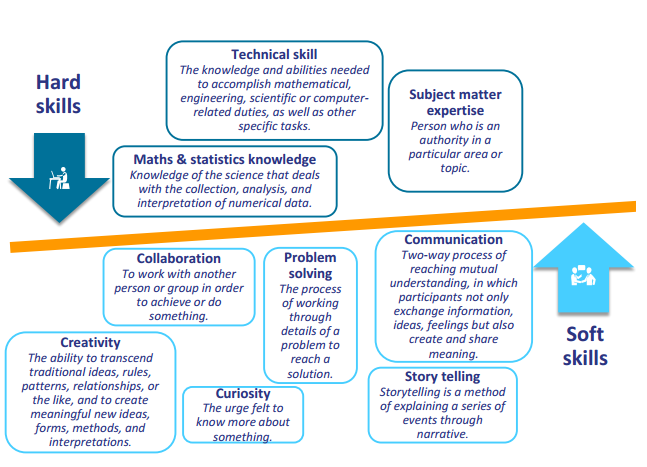
Figure 5 - Hard and soft skills to work with data (Source: Open Data Maturity in the EU28+ countries report 2016)
More
Unlocking Ireland's Data Potential: Navigating the Open Data Directive with UrbanTide
News

UrbanTide's Commitment to Security: Officially ISO 27001 Certified!
News

uZero was awarded the edie Net Zero Innovation of the Year: Software, Systems & Services Award
News

Tackling the growing fuel poverty crisis and supporting the Just Transition to net zero
News

Low Carbon Homes’ Home Upgrade Show: Innovations in Retrofit
News

Data Integration and Collaboration are critical for the future of Transportation: Insights from JCT Symposium
News

uMove to support Bedfordshire Council to achieve ambitious sustainability plans
News

Active travel, the current challenges and solutions
News

Using the power of data to build cities of tomorrow
News

uMove supports the Smart Manuals for Streets programme from DfT
News

Scotland's Cycling Framework Makes Infrastructure Greatest Priority
News

Reducing emissions and improving health with active travel
Cycling Scotland

Targeting energy-efficiency campaigns to households most in need
Greater South East Net Zero Hub

Protecting an aging population from fuel poverty
Dartford Borough Council and Dover District Council

Identifying households eligible for energy grant support
The Wise Group

Facilitating active travel behavioural change with data
SEStran

Helping identify customers in or at risk of fuel poverty.
UK Power Networks

Open data promotes transparency, builds trust and empower citizens
Ireland Open Data Training
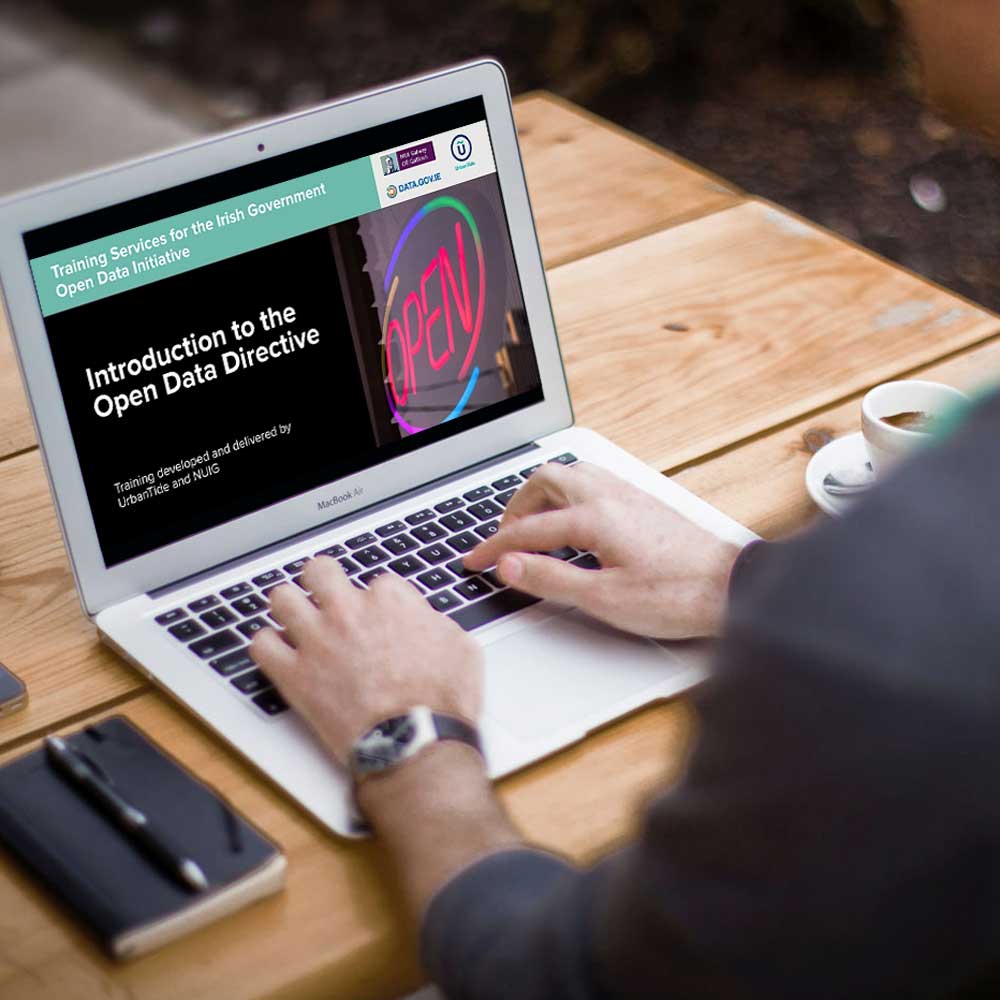
Identifying and unlocking new revenue from business rates with AI
North Lanarkshire

Tackling the growing
fuel poverty crisis with data and AI
UKRI

Understanding how we live and use our homes with real-time energy data
Smartline

Managing the impact of noise pollution on our cities
Noiseability

Accelerating the transformation of the UK’s energy systems
Energy Systems Catapult

Creating an integrated, affordable low-carbon energy system of the future
ReFLEX Orkney

Investing in sustainable transport infrastructure to become carbon neutral
Somerset County Council

Identifying ageing households at risk of cold and damp home
Sunderland City Council

Innovate UK funding to help our Planet Centred approach to retrofitting Europe’s leakiest homes
News

Open data is now a legal requirement in Ireland and the EU
News

New ‘uZero’ Artificial Intelligence software could help millions with their fuel bills
News
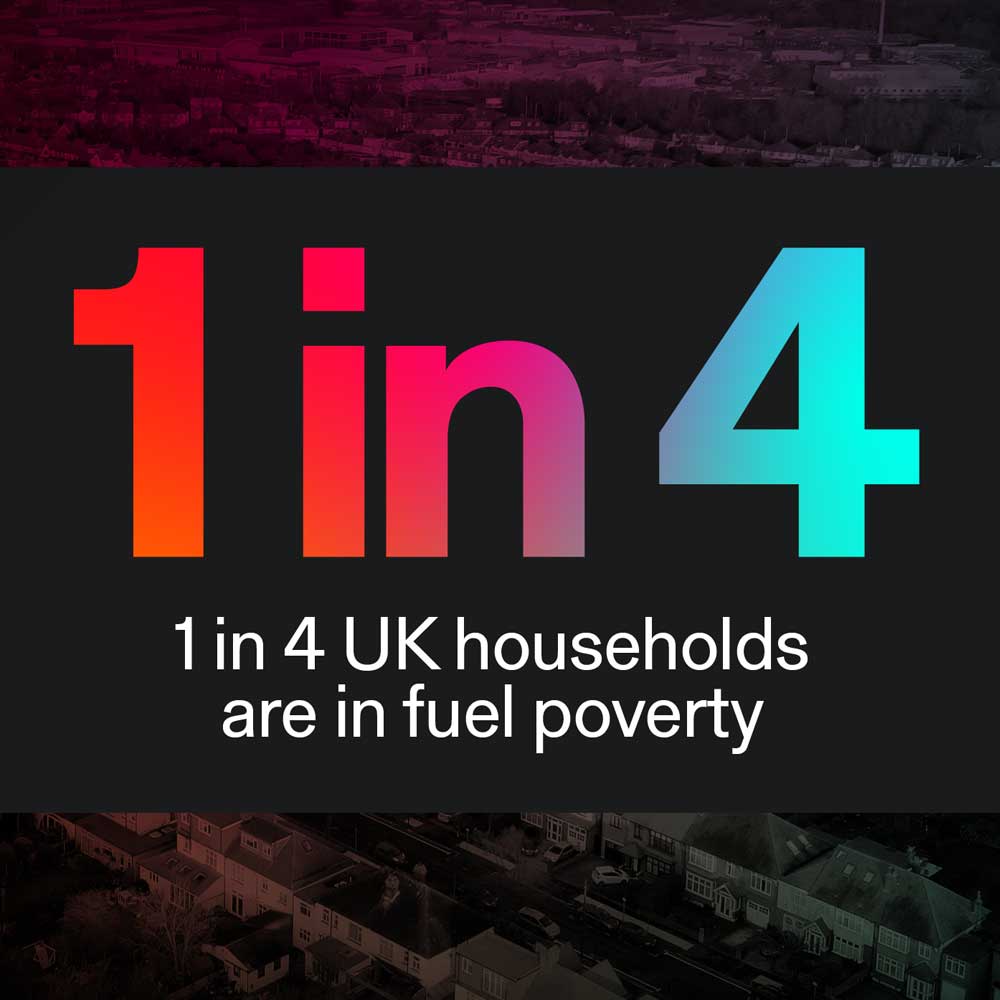
UrbanTide helps secure £48 million funding for Scottish Cities Alliance
News

UrbanTide leads £24 million program to make Glasgow a Future City
News

Building smart communities for OPEN Glasgow Engagement Programme
News

UrbanTide launches IoT data insights platform, uSmart
News
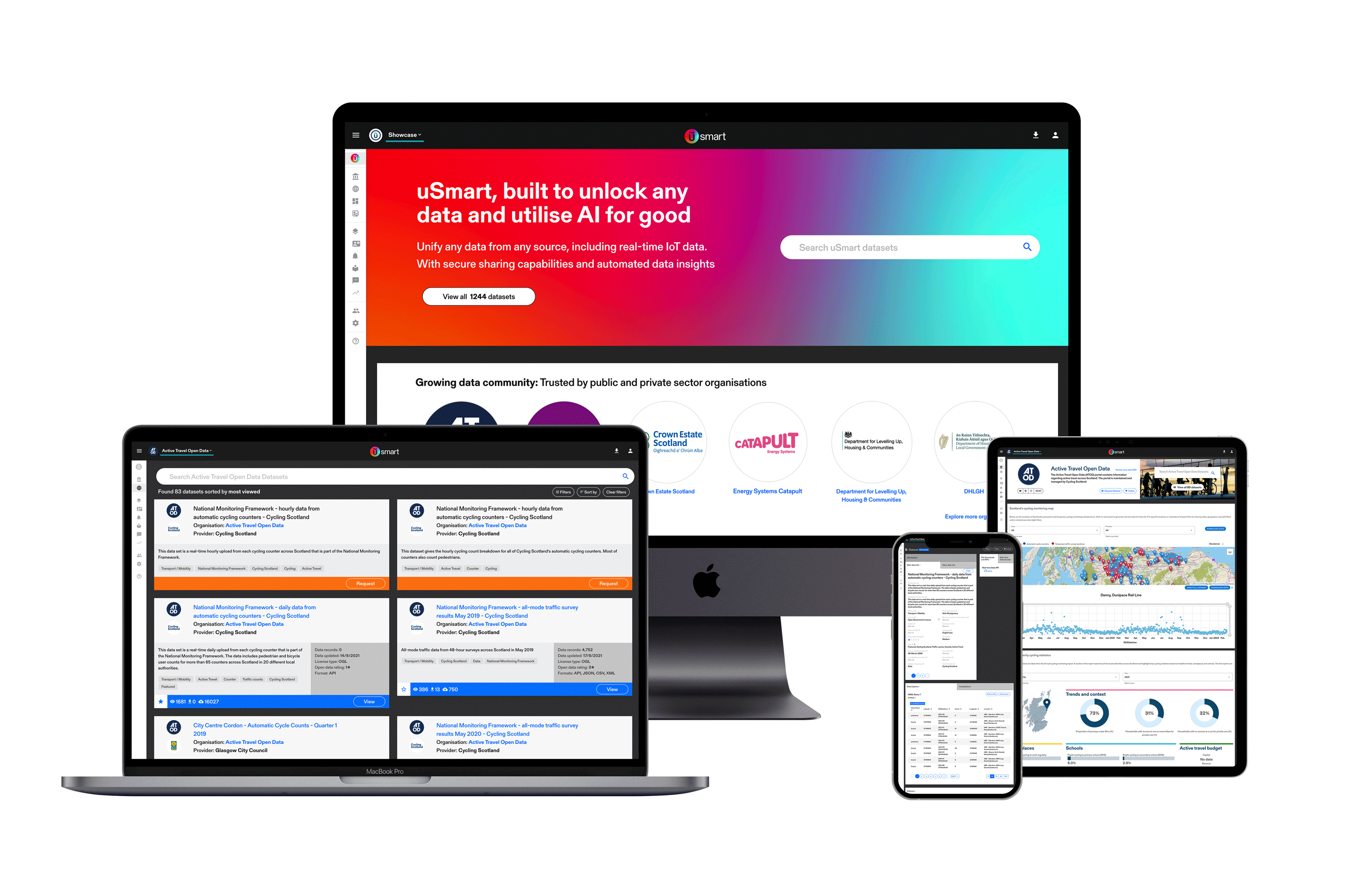
uZero announced as UKRI MEDA competition winner
News

Social Connect is a unique UK Power Networks (UKPN) innovation project
News

UrbanTide announces partnership with Energy Systems Catapult
News

UrbanTide marks four years of Open Data training in Ireland
News

Noisability: UrbanTide wins major bid as part of SynchroniCity program
News

UrbanTide joins prestigious Artificial Intelligence accelerator
News

UrbanTide recognised at ScotlandIS Digital Technology Awards
News

ODI publishes case studies that show how open data can be used in service redesign
News

UrbanTide teams up with North Lanarkshire Council to make better services with data
News

UrbanTide, Snook and North Lanarkshire Council announced as finalists for the 2018 Digital Technology Awards
News

Innovative smart communities IoT project powered by USMART
News
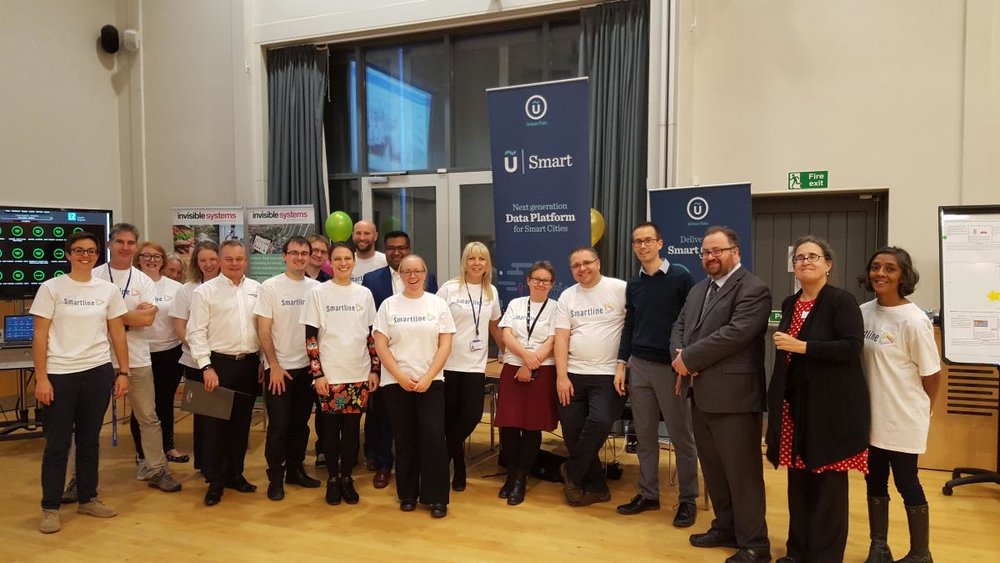
The Power of Data Science in the Health and Care Sector
News

UrbanTide to help transform Ireland by unlocking the power of open data
News

Stay ahead of the curve by learning more about these new smart cities standards
News

#DataFest17 - 12 key lessons we learned about smart cities, communities and the future of data
News
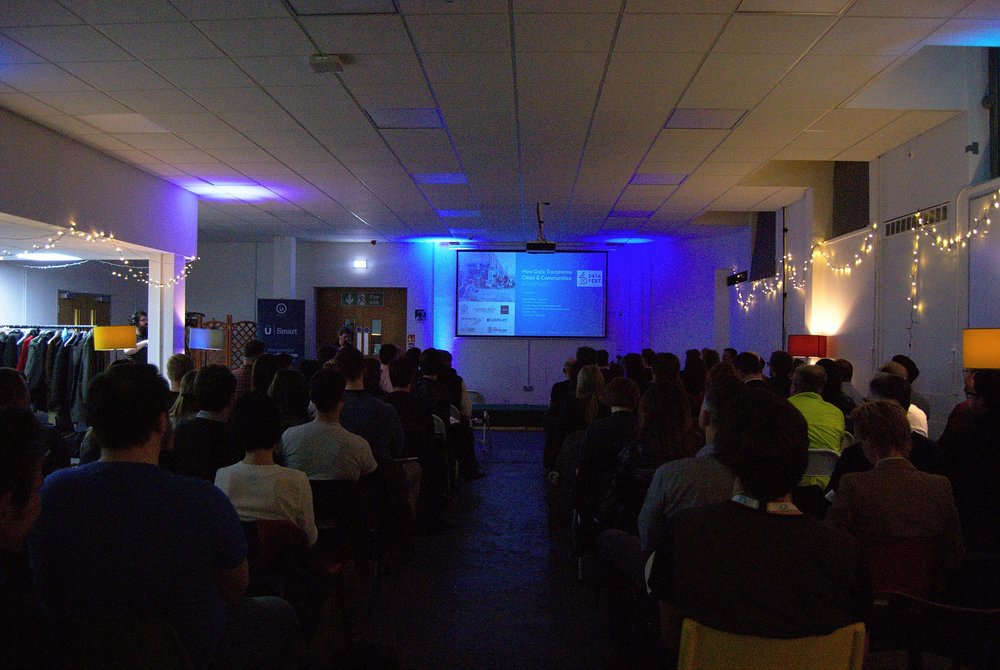
Emerging ideas for a renewed (Y)Our Glasgow City Centre
News

Future Health Hack - building the future of healthcare one line of code at a time
News
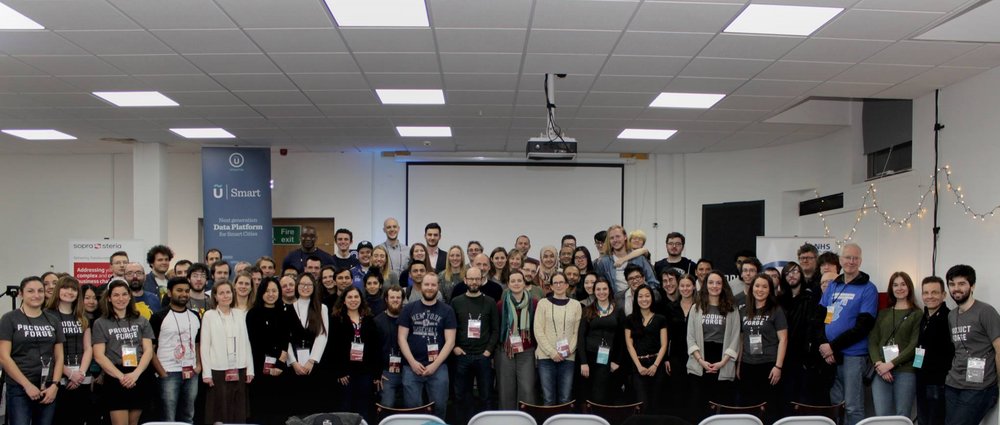
Meet our API Data Explorer – aka your new best friend if you are working with big data
News

Car parks ‘extinct’ in smart cities of the future?
News

3 awesome USMART features - with more coming soon!
News

Data scientists and USMART: a match made in heaven
News

We are now Regional Supporters of Open Data Impact Map
News

Next generation open data platform looking for beta testers!
News

Glasgow city centre regeneration - how smart can Glasgow be?
News

Open data - is the open private sector the next frontier?
News

Open data everywhere! Review of open data maturity in Europe, UK and Scotland
News

Feedback from our year delivering open data training for Scottish Government
News

Announcing our new open data training programme
News

Glasgow City Centre District Regeneration Frameworks
News

Metadata and metadata standards- reflections from our Chief Operational Officer
News

All about our Smart Cities Maturity Self-Assessment Tool
News

Open data training for Scotland's public sector
News

Engage - invest – Exploit (EiE) or Enjoyable - interactive - Experience (EiE)
News

UrbanTide and India: 5 Lesson's Learned from Simon's Trip to the Subcontinent
News

Cisco and the Smart Cities Council: 4 Messages from America...
News

Edinburgh continues to iterate, and then iterate again
News

Start your journey
Take a look at our product page to find out which UrbanTide AI tool has been designed for your needs.
Find out how we can support your data and AI projects and see our growing AI portfolio in action.
